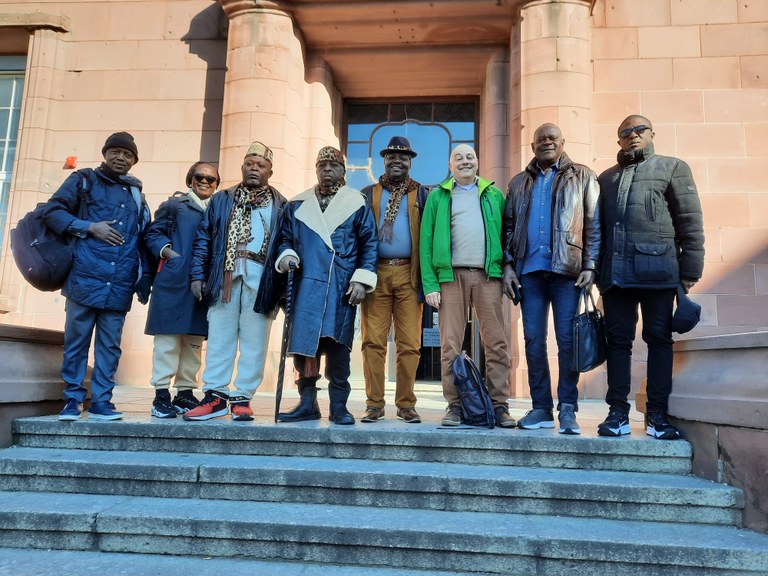ACT policy paper highlights colonial heritage in university collections
The Africa Centre for Transregional Research (ACT) at the University of Freiburg, in collaboration with the BMBF network Postcolonial Hierarchies in Peace & Conflict, has presented a policy paper that addresses the responsible handling of ‘human remains’ from colonial contexts of violence. The example of the Alexander Ecker Collection at the University of Freiburg illustrates the ongoing relevance of colonial power relations in science and society.

Andreas Mehler and the Maka delegation in front of the university © ABI
The authors Richard Tsogang Fossi (TU Berlin, University of Dschang) and Andreas Mehler (ACT, University of Freiburg) analyse the complex history of
five Maka skulls from Cameroon that entered the Freiburg collection at the beginning of the 20th century. Their research highlights the need to critically examine university collections, transparently document provenance and prepare repatriations on an ethical basis.
The key recommendations of the policy paper include cooperative provenance research involving societies of origin, making research results accessible and raising awareness, as well as actively preparing for repatriations.
A dialogue with representatives of the Maka community, which began in 2025, represents a first step in this process. The policy paper is intended as a starting point for further interdisciplinary and transnational negotiation processes in dealing with colonial legacies.
The policy paper is available in german and in french.






